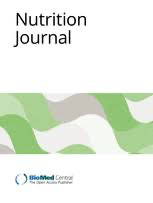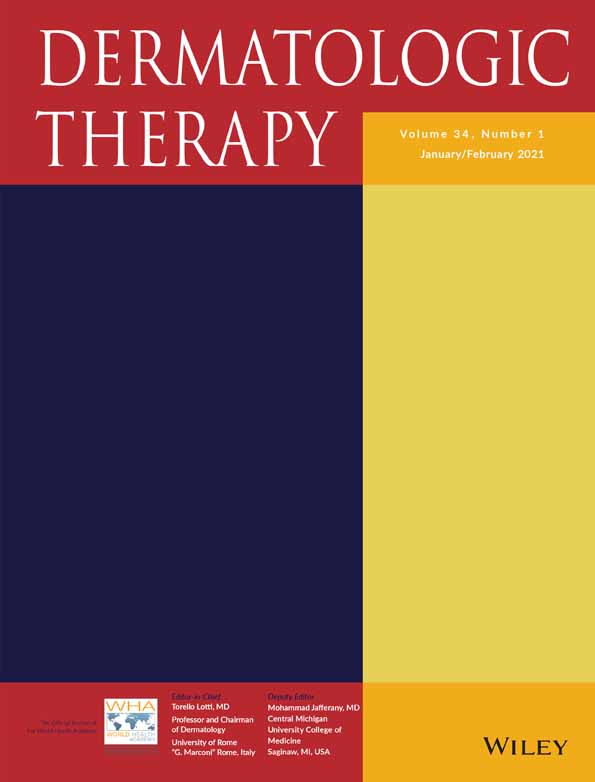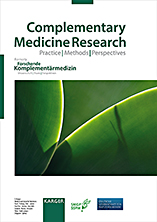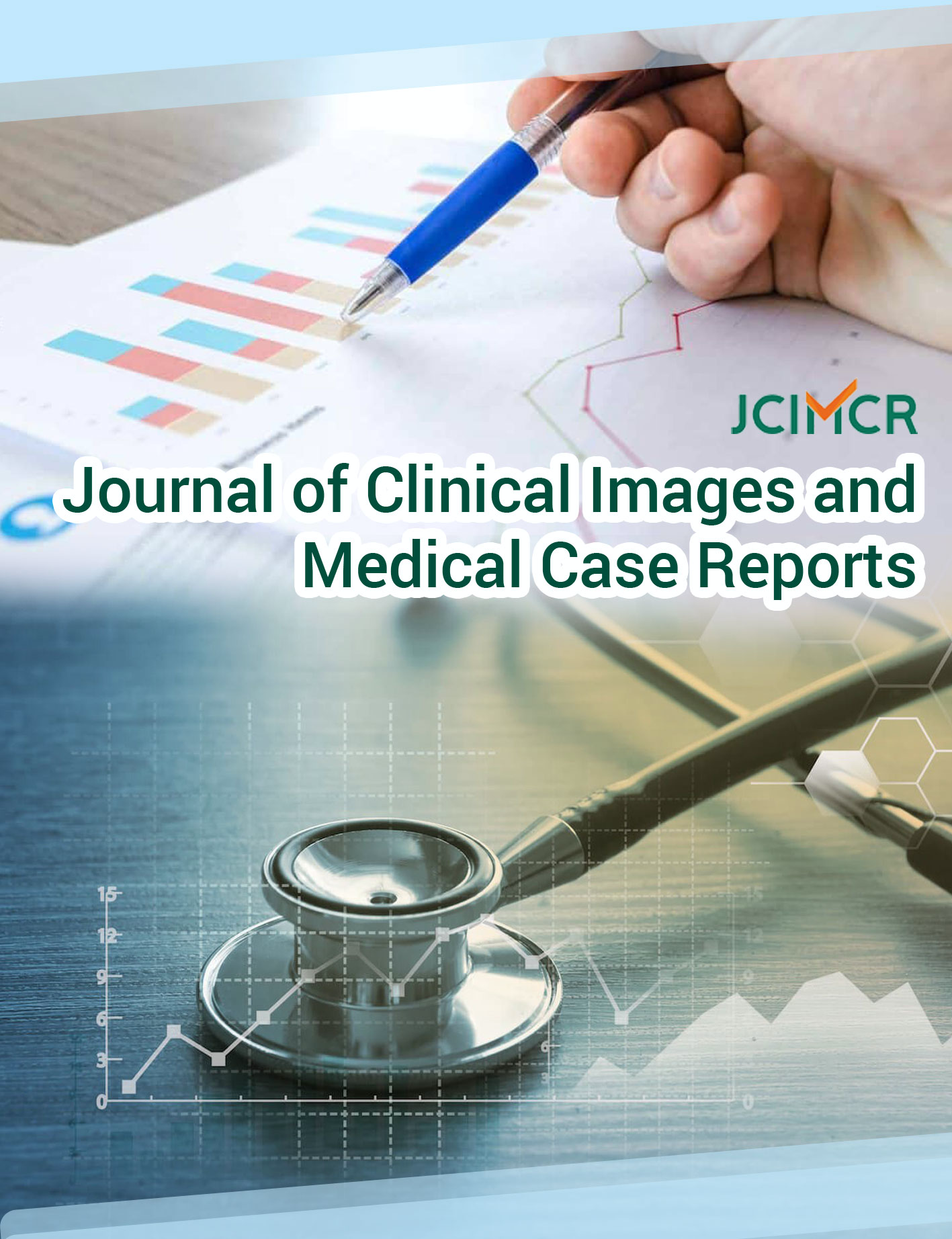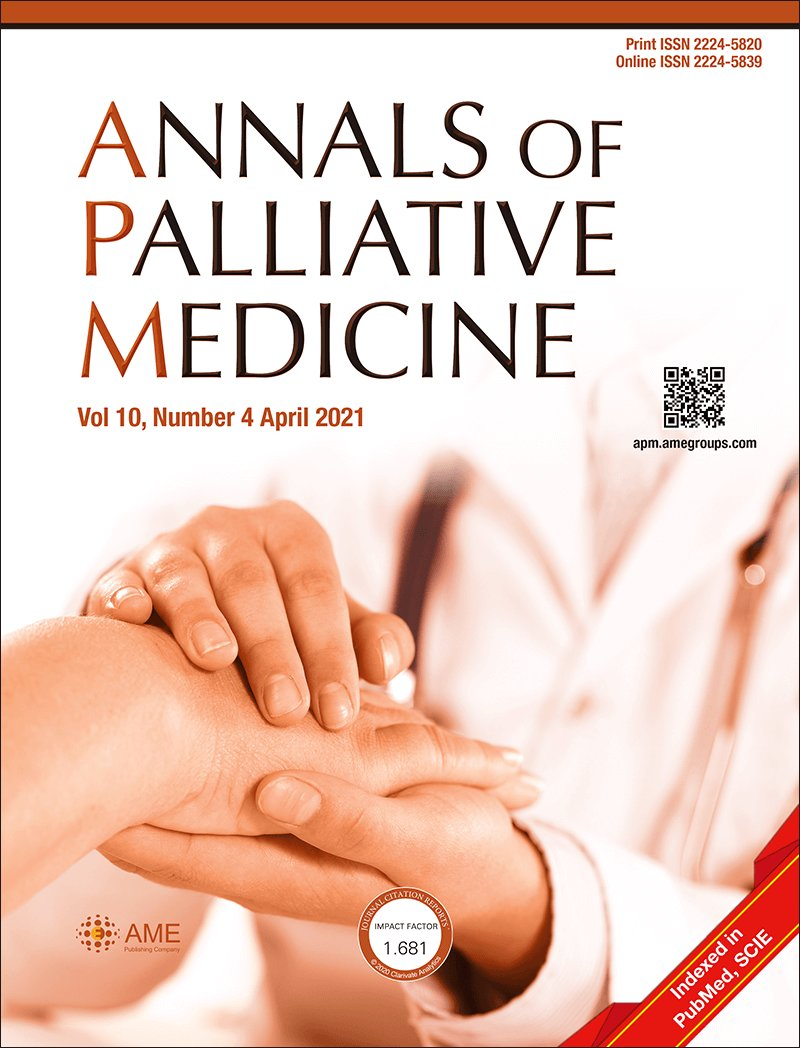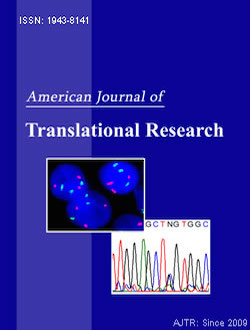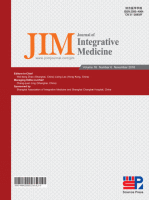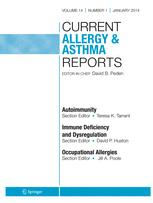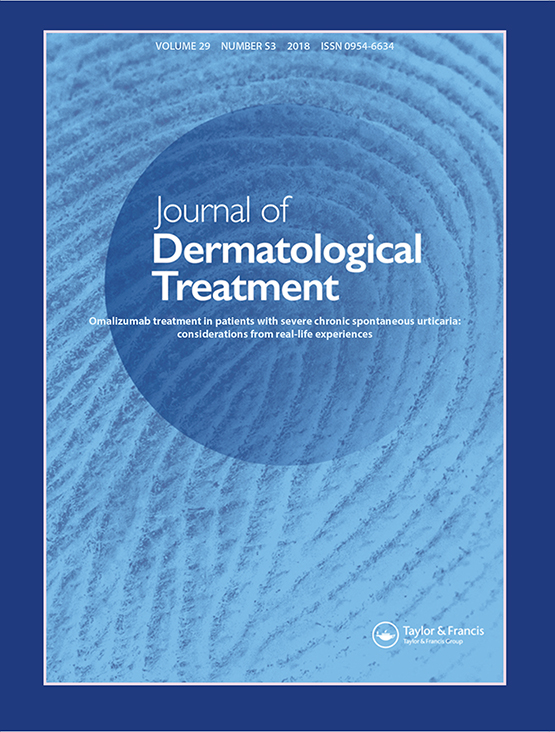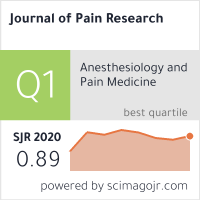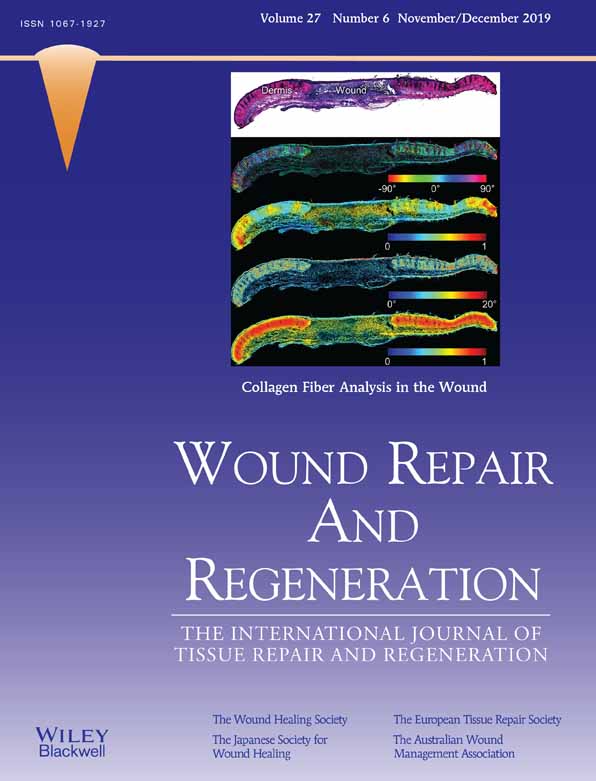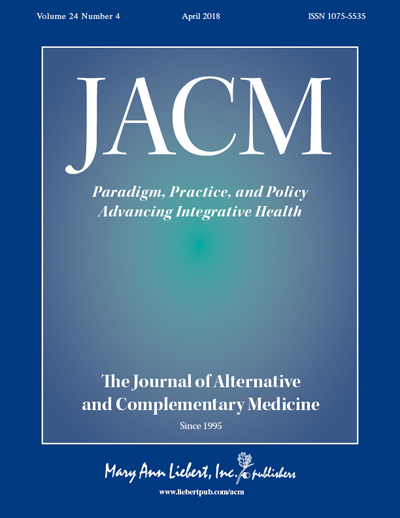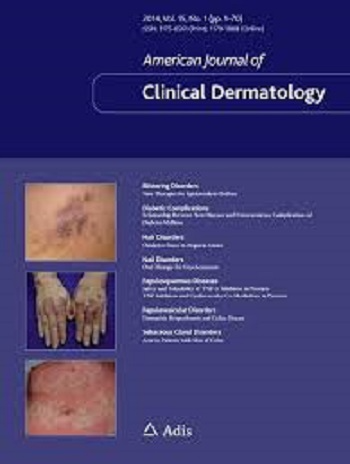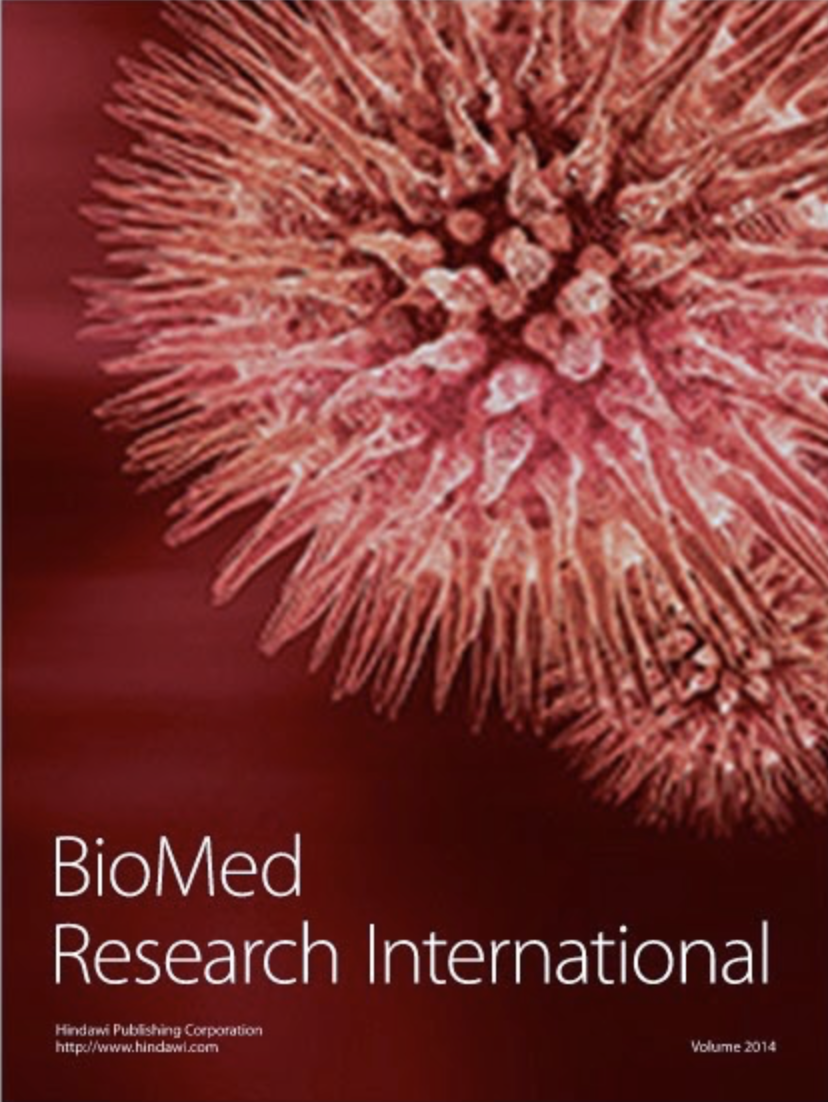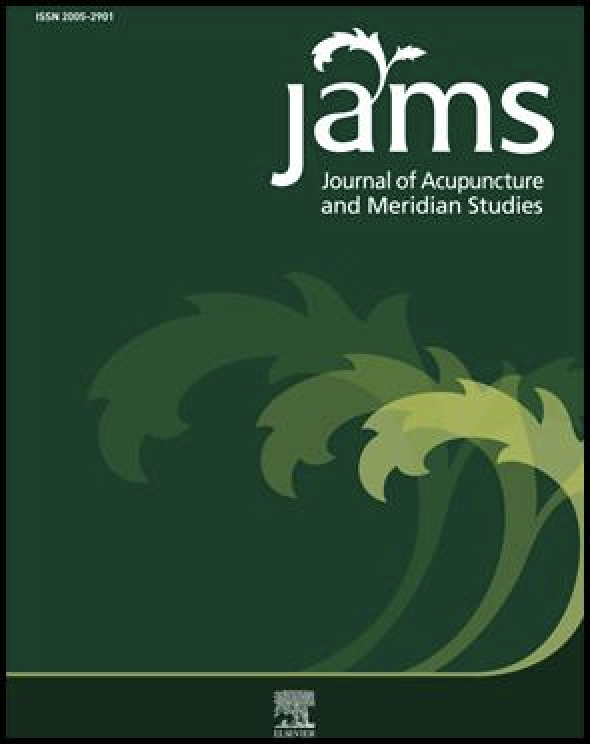
Acupuncture for Skin Conditions.
The skin is the body's largest organ and acts as a barrier to the external environment. Many skin conditions are related to the body's immune and digestive systems.
Common, persistent skin conditions requiring medical treatment include eczema and dermatitis, psoriasis and acne. Acute skin conditions include shingles (herpes zoster), itching and hives (urticaria).
What is our clinical experience?
Based on feedback collected from over 1,318 initial appointments for Skin Symptoms, 84% of our patients reported improved quality of life after their first 5 appointments. See our detailed benchmarking statistics.
Initial
Consults
1,318
Average
Appointments
5
Improved
Quality of Life
84%
Refer Family &
Friends
86%
What does the research say?
The following insights are obtained from systematic reviews and analysis of clinical trials investigating the efficacy of Chinese medicine and acupuncture for skin conditions.
2024 Nutrition Journal
Higher consumption of ultra-processed food by pregnant women was linked to an increased risk of infantile atopic dermatitis within the first year of life.
The research used 861 pairs of pregnant women and their offspring from the Mothers' and Children's Environmental Health project in Korea. These women’s dietary intake was measured using the 24-hour recall method during 12-28 weeks gestation. Foods were classified as ultra-processed following the NOVA classification and their consumption was calculated as the proportion of total energy intake, with participants categorized into quartiles. The prevalence of infantile atopic dermatitis was assessed based on their medical histories and according to the International Study of Asthma and Allergies in Childhood criteria.
The results revealed that children born to mothers in the highest quartile of ultra-processed food consumption, compared to the lowest quartile, showed a higher risk towards atopic dermatitis within 12 months. This relationship became stronger after adjusting for certain confounding variables. Additionally, the link stayed consistent even after adjusting based on the Korean Healthy Eating Index, which measures diet quality.
Association of maternal ultra-processed food consumption during pregnancy with atopic dermatitis in infancy: Korean Mothers and Children’s Environmental Health (MOCEH) study Jang W, Kim M, Ha E, Kim H
2022 Frontiers in Pharmacology
Chinese herbal medicine (CHM) improved AD symptoms but had no significant impact on patients' quality of life or IgE levels suggesting CHM's potential as an AD treatment with further research.
CHM showed benefits in improving AD symptoms, such as itching and skin appearance, compared to placebos. However, it didn't significantly affect patients' quality of life or IgE levels. CHM was safe, with only minor side effects. These findings suggest CHM could be a useful treatment for AD, but more standard guidelines are needed due to variations in herbal ingredients and dosages in different studies.
Efficacy and safety of Chinese herbal medicine for atopic dermatitis: Evidence from eight high-quality randomized placebo-controlled trials Cai X, Sun X, Liu L, Zhou Y, Hong S, Wang J, Chen J, Zhang M, Wang C, Lin N, Li S, Xu R, Li X
2022 Dermatologic Therapy
Long Dan Xie Gan formula used as an adjuvant therapy may hasten skin healing, relieve pain symptoms, and prevent persistent pain in acute herpes zoster patients.
For the methodology, multiple databases such as PubMed, Embase, Cochrane Library, China National Knowledge Infrastructure, Chinese Scientific Journal Database, and Wanfang were searched by two independent authors for relevant randomized controlled trials (RCT) until July 31, 2021. The chosen studies analysed the additive effects of LDXG formula, in different forms such as decoction, capsule, or pill, for acute herpes zoster management. Nine RCTs fitting the criteria were selected, totaling 821 patients for the meta-analysis.
Concerning the results, statistical analysis using a random effect model revealed that adding LDXG formula to conventional therapy noticeably shortened the time of blister resolution, crust formation, and pain resolution. It also reduced the pain intensity and incidence of lingering pain for those with acute herpes zoster in comparison to conventional treatment alone. Yet, this evidence was assessed as being of very low to moderate certainty, indicating interpretation of these results should be cautious due to statistical heterogeneity and/or an unclear risk of bias existing.
Longdan Xiegan formula as adjuvant therapy for acute herpes zoster: A metaâ€analysis of randomized controlled trials Zhang L, Duan A, Li Y, Feng J
2022 Evidence-Based Complementary and Alternative Medicine
Traditional Chinese medicine, including acupuncture, can provide superior pain relief and faster recovery for HIV-related Herpes Zoster compared to regular drugs.
The review began by searching nine electronic databases for randomized controlled trials focused on the use of traditional Chinese medicine in treating HIV-associated Herpes Zoster. Two independent authors extracted data on interventions and outcomes, and the Cochrane risk-of-bias tool was used to evaluate the quality of the trials. Meta-analyses were subsequently performed using specific software.
Results of the review showed that in general, the use of Chinese herbal medicine resulted in lower pain intensity and shorter herpes-related pain duration. Additionally, patients treated with this type of medicine and combined treatments recorded lower incidences of postherpetic neuralgia. The cure rate, defined as the complete absence of pain and herpes, also significantly improved with acupuncture and Chinese herbal medicine, compared to regular drugs. Notably, four trials reported on side effects, and no severe adverse events were mentioned.
Traditional Chinese Medicine for HIV-Associated Acute Herpes Zoster: A Systematic Review and Meta-Analysis of Randomized Trials Jiang Y, Zheng RX, Yu ZY, Zhang XW, Li J, Lan HD, Qiao SY, Han M, Cao HJ, Robinson N, Liu JP
2022 Medicine
Acupuncture coupled with traditional Chinese medicine may be more effective and safer than conventional Western medicine in treating chronic urticaria.
To compare the efficacy of acupuncture with traditional Chinese medicine to conventional Western medicine, several databases, including Pubmed, Embase, Cochrane Library, CNKI, Wanfang, CQVIP, and CBM, were searched until August 2021. The criterion for inclusion were randomized control trials where the experimental group was treated with acupuncture and traditional Chinese medicine, and the control group with conventional Western medicine. Studies were excluded if they were repeated publications, lacked full text, incomplete in information, or incapable of data extraction. Animal experiments, reviews, and systematic reviews were also disregarded. Data analysis was conducted using STATA 15.1 software.
The analyzed results revealed that the total effective rate of the group treated with acupuncture and traditional Chinese medicine was noticeably higher than those treated with conventional Western medicine. Additionally, this group showed considerably lower Urticaria Activity Scores and pruritus scores compared to those treated with Western medicine. However, there was no substantial difference shown in the wheal score between both groups. Significantly, the recurrence rate and the incidence rate of adverse events in the group treated with acupuncture and traditional Chinese medicine were markedly lower than the other group. This highlights the greater effectiveness and safety of the combination of acupuncture and traditional Chinese medicine for chronic urticaria compared to Western medicine.
Efficacy and safety of Chinese medicine combined with acupuncture in the treatment of chronic urticaria: A meta-analysis Lu Z, Zhou Q, Chai S, Yang H, Wang J, Luo H, Cao Y, Tao M
2021 Complementary Medicine Research
Acupuncture treatment offers significant benefits for herpes zoster patients, including reduced pain intensity and faster healing times.
The methodologies of this study entailed screening five databases for randomized clinical trials (RCTs) that were published up to August 2019. These studies had to examine the effectiveness of acupuncture as a standalone treatment for herpes zoster. Key outcomes assessed included pain intensity, crust formation time, crust shedding time, and the occurrence of post-herpetic neuralgia.
In the study's results, there was considerable impact noted from acupuncture treatment on the herpes zoster patients. When compared to antiviral therapy, it was found that acupuncture led to less pain, quicker formation and shedding of crusts, and a lower incidence of post-herpetic neuralgia. A meta-regression analysis identified that the sample size and treatment duration were significant sources of variation in the results. Despite some variation in the decrustation time data, a sensitivity analysis indicated that the general outcomes were stable and reliable.
Efficacy of Acupuncture for Herpes Zoster: A Systematic Review and Meta-Analysis Cui Y, Wang F, Li H, Zhang X, Zhao X, Wang D
2021 Journal of Clinical Images and Medical Case Reports
Long Dan Xie Gan Decoction combined with valacyclovir appears to enhance the treatment of herpes zoster, improving pain intensity, and crust formation time.
For this systematic review, a comprehensive search was conducted in bibliographic databases - PubMed, Chinese Scientific Journals Database, China National Knowledge Infrastructure, and Wan-fang Database until the 6th of April, 2021. The main focus was on Randomised Controlled Trials (RCTs) that looked at herpes zoster treatments involving the combined use of Longdanxiegan Decoction (LDXGD) and valacyclovir. The quality of these studies was assessed using the Cochrane risk of bias tool and a meta-analysis was conducted using RevMan 5.4.1 software.
The analysis incorporated five studies with a total of 414 participants. The methodological quality of these studies ranged from low to moderate. The combined use of LDXGD and valacyclovir showed relative benefits in efficacy rates compared to the use of valacyclovir alone. This was reflected in the lower pain intensity noted by a visual analogue scale, decreased incidence of postherpetic neuralgia (PHN), and shorter time frame to crust formation. However, the safety profile for the combined treatment of LDXGD and valacyclovir remains unclear.
Efficacy and safety of Chinese herbal medicine longdanxiegan decoction combined with val-acyclovir in herpes zoster: A systematic review and mate-analysis Wang X, , Wu L, Hou Y, Ding S, Wang S, Zhang Y, Zhang G, , , , , ,
2021 Annals of Palliative Medicine
Acupuncture therapy could potentially serve as an effective supplementary treatment method for psoriasis.
The methodology of this study involved a thorough search across eight electronic databases, include grey, or unpublished, literatures. The search ranged from the date of inception of these databases to July 2021. Researchers used strict criteria to select which systematic reviews and meta-analyses to include in their analysis. The selected reviews were then assessed using specific tools to evaluate their methodological quality, reporting quality, bias risk, and the overall quality of primary outcome measures.
In the results discussion, it was found that, of the seven systematic reviews and meta-analyses that met the inclusion criteria, all were deemed to have low methodological quality and contained major discrepancies in their financial statements, protocols, and registrations. Two of these studies were considered to have a low risk of bias. Out of 27 outcomes investigated in this review, only one was classified as high-quality evidence, seven as moderate-quality, and 19 as low-quality. Despite these findings, the researchers cautiously endorse acupuncture as a supplementary treatment method for psoriasis, although this endorsement is based mostly on lower-quality evidence.
Efficacy and safety of acupuncture therapy for psoriasis: an overview of systematic reviews Jing M, Shi L, Zhang Y, Zhu M, Yuan F, Zhu B, Chen M, Ge X
2021 American Journal of Translational Research
Using a combined treatment of modified Buzhong Yiqi decoction and Gangtai ointment improves wound healing and anal function for circumferential mixed hemorrhoid patients.
The researchers enrolled 120 patients with circumferential mixed hemorrhoids into this trial. After undergoing a surgical procedure, these participants were randomly sorted into two groups for treatment. The control group received chitosan hydrogels for wound healing on a daily basis. Meanwhile, the research group was treated with a daily oral dose of modified Buzhong Yiqi decoction together with Gangtai ointment applied externally twice a day for two weeks. Observations for comparison between groups included effective rates, pain indexes, perianal edema scores, quality of life score, wound healing and pain resolution times, anal functions, wound exudate scores, as well as adverse reactions.
In comparing the results of the experiment, it was found that the modified Buzhong Yiqi and Gangtai ointment combination gave better results across most measured outcomes. The research group showed a higher effective rate, reduced pain, and less perianal edema. The group's quality of life was improved, and their wounds healed more quickly with less pain experienced during recovery. Being able to maintain anal function was found to be more successful in the research group, and they had fewer incidences of adverse reactions. Furthermore, changes in wound exudate scores at 7 and 14 days post-treatment were lesser than those observed in the control group.
The effects of modified Buzhong Yiqi decoction combined with Gangtai ointment on the wound healing and anal function in circumferential mixed hemorrhoid patients Lu B, Du J, Wu X
2021 Frontiers in Nutrition
Processed food consumption, particularly pickles and processed meats, is linked with atopic dermatitis in Chinese adults.
This study involved a series of three cross-sectional studies that used cluster sampling across different locales, including villages, institutions, and factories. Subjects from different socio-economic and occupational backgrounds, including rural residents, civil servants, and factory workers, were subjected to dermatological evaluations by certified dermatologists. Alongside this, they responded to a food frequency questionnaire designed to understand their regular dietary habits. A spot urine sample was also taken from each participant to get an accurate measure of their daily sodium intake.
The analysis of results showed a significant association between atopic dermatitis and the consumption of certain processed foods - specifically, pickles and processed meats. It was found that people consuming pickles and processed meats 1-3 times a week were more likely to develop atopic dermatitis compared to individuals who rarely or never consumed these foods. Furthermore, a strong correlation was observed between higher sodium intake and the incidence of atopic dermatitis. The trend shows a dose-dependent relationship, meaning that as the intake of these specific processed foods, and sodium increased, so did the chances of coming down with atopic dermatitis.
Processed Food and Atopic Dermatitis: A Pooled Analysis of Three Cross-Sectional Studies in Chinese Adults Li Y, Su J, Luo D, Duan Y, Huang Z, He M, Tao J, Xiao S, Xiao Y, Chen X, Shen M
2020 Journal of Integrative Medicine
Cupping therapy, as an adjunct to current treatments, may potentially enhance efficacy when treating patients with chronic urticaria.
The research adopted a systematic review of randomized controlled trials, with the focus on efficacy and safety of cupping therapy for chronic urticaria. The researchers employed a search strategy aimed at identifying related keywords like "chronic urticaria" and "cupping therapy" in the title and abstracts, sourced from nine major electronic databases up till May 2019. Only trials that included patients with chronic urticaria who received dry or wet cupping were considered. The quality of the methodological design and potential bias of the studies were evaluated.
The findings suggest the efficacy of cupping therapy when used, not as a standalone treatment, but as an adjunct to other treatments, particularly to antihistamines and acupuncture. In a sample of trials, there were no significant differences between using wet cupping and conventional medications in terms of their total effective rate. However, cupping therapy combined with antihistamines or acupuncture was found to be more effective than when these treatments were used separately. No serious adverse events were reported as part of these findings.
Cupping therapy for patients with chronic urticaria: A systematic review and meta-analysis Xiao, X., Zhang, L., Shi, Y., Yao, J., Cao, W., Liu, Y., Zou, Z., Zhou, S., Chen, M., Li, C., Zheng, Q., & Li, Y.
2020 Journal of Integrative Medicine
Cupping therapy, as an adjunct to current treatments, may potentially enhance efficacy when treating patients with chronic urticaria.
The research adopted a systematic review of randomized controlled trials, with the focus on efficacy and safety of cupping therapy for chronic urticaria. The researchers employed a search strategy aimed at identifying related keywords like "chronic urticaria" and "cupping therapy" in the title and abstracts, sourced from nine major electronic databases up till May 2019. Only trials that included patients with chronic urticaria who received dry or wet cupping were considered. The quality of the methodological design and potential bias of the studies were evaluated.
The findings suggest the efficacy of cupping therapy when used, not as a standalone treatment, but as an adjunct to other treatments, particularly to antihistamines and acupuncture. In a sample of trials, there were no significant differences between using wet cupping and conventional medications in terms of their total effective rate. However, cupping therapy combined with antihistamines or acupuncture was found to be more effective than when these treatments were used separately. No serious adverse events were reported as part of these findings.
Cupping therapy for patients with chronic urticaria: A systematic review and meta-analysis Xiao, X., Zhang, L., Shi, Y., Yao, J., Cao, W., Liu, Y., Zou, Z., Zhou, S., Chen, M., Li, C., Zheng, Q., & Li, Y.
2020 Current Allergy and Asthma Reports
Traditional Chinese Medicine, specifically acupuncture, demonstrates promising effects in managing allergic diseases like allergic rhinitis and asthma.
The methodology for this paper involved an extensive review of recent publications, predominantly those presenting randomized controlled trials, that assess the use of Traditional Chinese Medicine (TCM) in treating allergies. The focus was on the two most popular treatment modalities in TCM, Chinese herbal medicine and acupuncture. Publications detailing the mechanisms by which TCM impacts allergic diseases, as well as literature in Chinese, were also examined.
The analysis of the results showed an increasing trend of using TCM, specifically Chinese herbal medicine, to manage allergic diseases. However, literature evidence was found lacking to conclusively establish its effectiveness. On the other hand, acupuncture showed more definitive evidence of its utility, especially when treating allergic rhinitis and asthma, either as a standalone intervention or alongside conventional western medication. Its effectiveness in treating atopic eczema and urticaria was less clear, nonetheless, it's recommended to be incorporated into the treatment of specific allergic diseases on a personalized basis.
Traditional Chinese Medicine (TCM) and Allergic Diseases Chan HHL, Ng T
2020 Medicine
Moving cupping therapy, alone or coupled with other treatments, could effectively alleviate symptoms of plaque psoriasis with minimal side effects.
The researchers conducted an exhaustive review of various databases up until March 2020, including PubMed, Embase, and others. The review focused on randomized controlled trials concerning the treatment of plaque psoriasis using moving cupping therapy, either alone or combined with Chinese herbs or conventional Western medicine. The effects obtained from these trials were contrasted with outcomes from placebo-controlled, pharmaceutical medication-based or Chinese herb-based treatments. They also compared the frequency of the moving cupping treatment.
After a meticulous selection process, sixteen trials involving 1164 participants met the entry criteria. The meta-analysis demonstrated that those who underwent moving cupping therapy exhibited significant symptom improvement compared to those who did not. Additionally, the combination of moving cupping and pharmaceutical medications proved to be more effective than pharmaceutical treatments alone. The recurring rate of psoriasis also substantially dropped due to cupping therapy. While moving cupping reduced some blood markers more effectively than conventional medicine did, it didn't show distinct advantages in the visual analogue score. Few transient side effects like redness, itching, and local skin burning were reported associated with moving cupping therapy.
Moving cupping therapy for plaque psoriasis Xing M, Ding X, Zhang J, Kuai L, Ru Y, Sun X, Ma T, Miao X, Liu L, Wang Y, Li B, Li X
2020 Journal of Dermatological Treatment
Traditional Chinese medicine could potentially serve as an effective alternative therapy for managing Psoriasis vulgaris.
The methodology for this study involved reviewing controlled clinical trials regarding Traditional Chinese Medicine's (TCM) use for Psoriasis vulgaris (PV) treatment, conducted within the past decade. Over 2000 papers were considered, from which 17 high-quality articles were selectively reviewed. Aspects such as design defects, small sample size, and inadequate intervention time in some trials were noted, affecting their potential for full clarification of TCM's role in PV treatment.
Results from the accumulated data insinuated that Traditional Chinese Medicine might hold the multi-target advantage to substantially lower the Psoriasis Area and Severity Index (PASI) scores, thereby benefiting PV management. In addition to its potential efficacy, the safety of using TCM for treating Psoriasis vulgaris was also evaluated during this review.
Evidence and potential mechanisms of traditional Chinese medicine for the treatment of psoriasis vulgaris: a systematic review and meta-analysis Dai D, Wu H, He C, Wang X, Luo Y, Song P
2019 Acupuncture in Medicine
Acupuncture might be effective at reducing itch intensity and may be more effective than conventional medicine at reducing eczema area and severity index (EASI) and improving the global symptoms of atopic eczema.
Acupuncture might be an effective treatment capable of reducing itch intensity, and may be more effective than conventional medicine at reducing EASI and improving global symptoms for patients with AE. Acupuncture is a safe treatment for patients with AE, but the available data are too few to suggest that acupuncture alone is effective at improving quality of life and recurrence rate. More high-quality trials with larger sample sizes are needed to confirm the effects of acupuncture on AE.
The effectiveness and safety of acupuncture for patients with atopic eczema: a systematic review and meta-analysis Jiao R, Yang Z, Wang Y, Zhou J, Zeng Y, Liu Z
2019 Journal of Pain Research
Acupuncture shows potential in reducing pain intensity, alleviating anxiety, and improving quality of life for patients suffering from postherpetic neuralgia.
Methodology: To understand the effectiveness of acupuncture in treating postherpetic neuralgia, six different databases were examined for randomized controlled trials. The data from these studies was extracted and further assessed for quality. A meta-analysis was conducted on a selection of these studies using the software RevMan 5.3. Additionally, the Grading of Recommendations Assessment Development and Evaluation system contributed towards evaluating the overall quality of the evidence presented in these studies.
Discussion: The research establishes that acupuncture has a positive effect on postherpetic neuralgia, such as lowering the intensity of pain experienced and reducing the scores on the Hamilton Anxiety Scale. Other forms of intervention like electroacupuncture, fire needle, and bloodletting and cupping also proved effective in relieving pain. The results also indicate an enhanced quality of life for those individuals who used acupuncture. The quality of evidence that supports the use of acupuncture for this type of pain was judged to be moderate.
Is acupuncture an effective postherpetic neuralgia treatment? A systematic review and meta-analysis Pei, W., Zeng, J., Lu, L., Lin, G., & Ruan, J.
2019 Journal of Pain Research
Acupuncture shows potential in reducing pain intensity, alleviating anxiety, and improving quality of life for patients suffering from postherpetic neuralgia.
Methodology: To understand the effectiveness of acupuncture in treating postherpetic neuralgia, six different databases were examined for randomized controlled trials. The data from these studies was extracted and further assessed for quality. A meta-analysis was conducted on a selection of these studies using the software RevMan 5.3. Additionally, the Grading of Recommendations Assessment Development and Evaluation system contributed towards evaluating the overall quality of the evidence presented in these studies.
Discussion: The research establishes that acupuncture has a positive effect on postherpetic neuralgia, such as lowering the intensity of pain experienced and reducing the scores on the Hamilton Anxiety Scale. Other forms of intervention like electroacupuncture, fire needle, and bloodletting and cupping also proved effective in relieving pain. The results also indicate an enhanced quality of life for those individuals who used acupuncture. The quality of evidence that supports the use of acupuncture for this type of pain was judged to be moderate.
Is acupuncture an effective postherpetic neuralgia treatment? A systematic review and meta-analysis Pei, W., Zeng, J., Lu, L., Lin, G., & Ruan, J.
2019 Journal of Pain Research
Acupuncture shows potential in reducing pain intensity, alleviating anxiety, and improving quality of life for patients suffering from postherpetic neuralgia.
Methodology: To understand the effectiveness of acupuncture in treating postherpetic neuralgia, six different databases were examined for randomized controlled trials. The data from these studies was extracted and further assessed for quality. A meta-analysis was conducted on a selection of these studies using the software RevMan 5.3. Additionally, the Grading of Recommendations Assessment Development and Evaluation system contributed towards evaluating the overall quality of the evidence presented in these studies.
Discussion: The research establishes that acupuncture has a positive effect on postherpetic neuralgia, such as lowering the intensity of pain experienced and reducing the scores on the Hamilton Anxiety Scale. Other forms of intervention like electroacupuncture, fire needle, and bloodletting and cupping also proved effective in relieving pain. The results also indicate an enhanced quality of life for those individuals who used acupuncture. The quality of evidence that supports the use of acupuncture for this type of pain was judged to be moderate.
Is acupuncture an effective postherpetic neuralgia treatment? A systematic review and meta-analysis Pei, W., Zeng, J., Lu, L., Lin, G., & Ruan, J.
2019 Wound Repair and Regeneration
The herbal medicine Bu Zhong Yi Qi Yang can potentially promote healing in chronic wounds resistant to standard treatments, especially in malnourished patients.
In this investigation, a prospective, randomized trial was conducted on 18 patients with unresponsive chronic wounds. These patients were split into two groups: a medication group treated daily with 7.5g of oral Hochu-ekki-to, and a control group who didn't receive this treatment. The status of wound healing was assessed over a 12-week period, where it was scored based on factors such as depth, inflammation/infection, size, granulation tissue, necrotic tissue, exudate, and pocket size.
In the study, all patients in the medication group showed progress in wound healing at the end of 12 weeks. Conversely, only three patients in the control group showed comparable progress. This marked healing in the medication group was significantly noticeable after the 8-week mark. Hence, the study concluded that Hochu-ekki-to can be considered a beneficial adjunct therapy in managing chronic wounds, especially for patients suffering from malnutrition.
The beneficial effect of traditional Japanese herbal (Kampo) medicine, Hochuâ€ekkiâ€to (Buâ€Zhongâ€Yiâ€Qiâ€Tang), for patients with chronic wounds refractory to conventional therapies: A prospective, randomized trial Akita S, Namiki T, Kawasaki Y, Rikihisa N, Ogata H, Tokumoto H, Tezuka T, Kubota Y, Kuriyama M, Nakamura M, Mitsukawa N
2018 Complementary Therapies in Medicine
Acupuncture may improve symptoms in patients with mild-to-moderate atopic dermatitis.
The SCORing Atopic Dermatitis (SCORAD), VAS (Pruritus), VAS (Insomnia), Patient Oriented Eczema Measure (POEM), Dermatology Life Quality Index (DLQI), and Eczema Area and Severity Index (EASI) were significantly improved in the real acupuncture groups.
Acupuncture improves symptoms in patients with mild-to-moderate atopic dermatitis: A randomized, sham-controlled preliminary trial Smith CA, Armour M, Lee MS, Wang LQ, Hay PJ
2018 Complementary Therapies in Medicine
Acupuncture may improve symptoms in patients with mild-to-moderate atopic dermatitis.
The SCORing Atopic Dermatitis (SCORAD), VAS (Pruritus), VAS (Insomnia), Patient Oriented Eczema Measure (POEM), Dermatology Life Quality Index (DLQI), and Eczema Area and Severity Index (EASI) were significantly improved in the real acupuncture groups.
Acupuncture improves symptoms in patients with mild-to-moderate atopic dermatitis: A randomized, sham-controlled preliminary trial Smith CA, Armour M, Lee MS, Wang LQ, Hay PJ
2018 Evidence-Based Complementary and Alternative Medicine
Acupuncture has similar efficacy compared to pharmacotherapies for acne vulgaris, however acupuncture interventions reported less adverse effects and may be a treatment option.
There was no statistical difference in the efficacy of acupuncture compared to pharmacotherapies for acne vulgaris; however acupuncture interventions reported less adverse effects. Poor methodological quality of trial design and lack of consistent reporting of outcome measures from some trials were found in this review; therefore results should be interpreted with caution. Future trials should include rigorous methodological design and reporting should follow standard reporting conventions such as CONSORT and STRICTA. Quality of life measures and further understanding of the mechanisms of acupuncture on acne should also be considered for future studies.
Acupuncture for Acne Vulgaris: A Systematic Review and Meta-Analysis Mansu SSY, Liang H, Parker S, Coyle ME, Wang K, Zhang AL, Guo X, Lu C, Xue CCL
2018 Evidence-Based Complementary and Alternative Medicine
Acupuncture has similar efficacy compared to pharmacotherapies for acne vulgaris, however acupuncture interventions reported less adverse effects and may be a treatment option.
There was no statistical difference in the efficacy of acupuncture compared to pharmacotherapies for acne vulgaris; however acupuncture interventions reported less adverse effects. Poor methodological quality of trial design and lack of consistent reporting of outcome measures from some trials were found in this review; therefore results should be interpreted with caution. Future trials should include rigorous methodological design and reporting should follow standard reporting conventions such as CONSORT and STRICTA. Quality of life measures and further understanding of the mechanisms of acupuncture on acne should also be considered for future studies.
Acupuncture for Acne Vulgaris: A Systematic Review and Meta-Analysis Mansu SSY, Liang H, Parker S, Coyle ME, Wang K, Zhang AL, Guo X, Lu C, Xue CCL
2018 Medicine
There is limited evidence that acupuncture is safe and might be effective in pain relieving for patients with postherpetic neuralgia.
Seven RCTs comparing acupuncture versus pharmacologic therapy were included. Meta-analysis was conducted for acupuncture's effect on postherpetic neuralgia evaluating by pain intensity. Results from 2 RCTs showed that compared with pharmacologic therapy, acupuncture was better in decreasing the pain intensity measured by visual analog scale score. The limitations of the study are as follows: only trials comparing acupuncture versus pharmacologic therapy were included and all of the included trials were performed in China.
Acupuncture for postherpetic neuralgia: Systematic review and meta-analysis Wang, Yang., Li, Wang., Peng, Weina., Zhou, Jing., Liu, Zhishun
2017 The Journal of Alternative and Complementary Medicine
Acupuncture-related techniques could be considered as an alternative or adjuvant therapy for psoriasis in short term.
A total of 13 RCTs with 1,060 participants were included. The methodological quality of included studies was not rigorous. Acupoint stimulation, compared with nonacupoint stimulation, had a significant treatment for psoriasis. However, the most common adverse events were thirst and dry mouth. Subgroup analysis was further done to confirm that the short-term treatment effect was superior to that of the long-term effect in treating psoriasis. Network meta-analysis identified acupressure or acupoint catgut embedding, compared with medication, and had a significant effect for improving psoriasis. It was noted that acupressure was the most effective treatment.
Acupuncture-related techniques for psoriasis: a systematic review with pairwise and network meta-analyses of randomized controlled trials. Yeh, M. L., Ko, S. H., Wang, M. H., Chi, C. C., & Chung, Y. C.
2016 American Journal of Clinical Dermatology
There is at least some level I evidence to support the use of acupuncture and acupressure as adjuncts to conventional treatment of atopic dermatitis.
There is at least some level I evidence to support the use of acupuncture and acupressure, stress-reducing techniques such as hypnosis, massage, and biofeedback, balneotherapy, herbal preparations (with many important caveats), certain botanical oils, oral evening primrose oil, vitamin D supplementation, and topical vitamin B12. Many other therapies either have sufficient data to suggest that they are ineffective, or simply do not have enough evidence to formulate a verdict.
Complementary and Alternative Medicine for Atopic Dermatitis: An Evidence-Based Review Vieira BL, Lim NR, Lohman ME, Lio PA.
2016 American Journal of Clinical Dermatology
There is at least some level I evidence to support the use of acupuncture and acupressure as adjuncts to conventional treatment of atopic dermatitis.
There is at least some level I evidence to support the use of acupuncture and acupressure, stress-reducing techniques such as hypnosis, massage, and biofeedback, balneotherapy, herbal preparations (with many important caveats), certain botanical oils, oral evening primrose oil, vitamin D supplementation, and topical vitamin B12. Many other therapies either have sufficient data to suggest that they are ineffective, or simply do not have enough evidence to formulate a verdict.
Complementary and Alternative Medicine for Atopic Dermatitis: An Evidence-Based Review Vieira BL, Lim NR, Lohman ME, Lio PA.
2016 BioMed Research International
Acupuncture may prove effective and safe in relieving symptoms of chronic urticaria.
In the methodology, a systematic review and meta-analysis were carried out incorporating randomised controlled trials. The main outcome focused on was global symptom improvement.
The results indicated that out of the 6 studies with 406 participants, three trials demonstrated a substantial difference between acupuncture and medication in terms of global symptom improvement. Moreover, when acupuncture was used as an addition to medication, it showed beneficial effects for global symptom improvement. No severe adverse events related to acupuncture were reported. Limitations included high bias risk across the trials, and methodological restrictions.
The Effectiveness and Safety of Acupuncture for Patients with Chronic Urticaria: A Systematic Review Yao Q, Li S, Liu X, Qin Z, Liu Z
2015 Journal of Acupuncture and Meridian Studies
Acupuncture improves outcome measures in the treatment of dermatitis, chloasma, pruritus, urticaria, hyperhidrosis, and facial elasticity.
Twenty-four studies met inclusion criteria. Among these, 16 were randomized controlled trials, 6 were prospective observational studies, and 2 were case reports. Acupuncture was used to treat atopic dermatitis, urticaria, pruritus, acne, chloasma, neurodermatitis, dermatitis herpetiformis, hyperhidrosis, human papillomavirus wart, breast inflammation, and facial elasticity. In 17 of 24 studies, acupuncture showed statistically significant improvements in outcome measurements compared with placebo acupuncture, alternative treatment options, and no intervention.
Acupuncture as a treatment modality in dermatology: a systematic review Ma, C., & Sivamani, R. K.
2015 Journal of Acupuncture and Meridian Studies
Acupuncture improves outcome measures in the treatment of dermatitis, chloasma, pruritus, urticaria, hyperhidrosis, and facial elasticity.
Twenty-four studies met inclusion criteria. Among these, 16 were randomized controlled trials, 6 were prospective observational studies, and 2 were case reports. Acupuncture was used to treat atopic dermatitis, urticaria, pruritus, acne, chloasma, neurodermatitis, dermatitis herpetiformis, hyperhidrosis, human papillomavirus wart, breast inflammation, and facial elasticity. In 17 of 24 studies, acupuncture showed statistically significant improvements in outcome measurements compared with placebo acupuncture, alternative treatment options, and no intervention.
Acupuncture as a treatment modality in dermatology: a systematic review Ma, C., & Sivamani, R. K.
2015 Journal of Acupuncture and Meridian Studies
Acupuncture improves outcome measures in the treatment of dermatitis, chloasma, pruritus, urticaria, hyperhidrosis, and facial elasticity.
Twenty-four studies met inclusion criteria. Among these, 16 were randomized controlled trials, 6 were prospective observational studies, and 2 were case reports. Acupuncture was used to treat atopic dermatitis, urticaria, pruritus, acne, chloasma, neurodermatitis, dermatitis herpetiformis, hyperhidrosis, human papillomavirus wart, breast inflammation, and facial elasticity. In 17 of 24 studies, acupuncture showed statistically significant improvements in outcome measurements compared with placebo acupuncture, alternative treatment options, and no intervention.
Acupuncture as a treatment modality in dermatology: a systematic review Ma, C., & Sivamani, R. K.
2015 Journal of Acupuncture and Meridian Studies
Acupuncture improves outcome measures in the treatment of dermatitis, chloasma, pruritus, urticaria, hyperhidrosis, and facial elasticity.
Twenty-four studies met inclusion criteria. Among these, 16 were randomized controlled trials, 6 were prospective observational studies, and 2 were case reports. Acupuncture was used to treat atopic dermatitis, urticaria, pruritus, acne, chloasma, neurodermatitis, dermatitis herpetiformis, hyperhidrosis, human papillomavirus wart, breast inflammation, and facial elasticity. In 17 of 24 studies, acupuncture showed statistically significant improvements in outcome measurements compared with placebo acupuncture, alternative treatment options, and no intervention.
Acupuncture as a treatment modality in dermatology: a systematic review Ma, C., & Sivamani, R. K.
2015 Evidence-Based Complementary and Alternative Medicine
Acupuncture is effective for ameliorating itch intensity in itch-related diseases.
In this systematic review, we have shown the meta-analysis of therapeutic effect that applies acupuncture therapy to treat itch-related disease by analyzing all the collected data from three RCTs involving 70 individuals. The result revealed that acupuncture is effective to ameliorate itch intensity of itch-related disease.
Efficacy of Acupuncture in Itch: A Systematic Review and Meta-Analysis of Clinical Randomized Controlled Trials Chi Yu, Pei Zhang, Zheng-Tao Lv, Jing-Jing Li, Hong-Ping Li, Cai-Hua Wu, Fang Gao, Xiao-Cui Yuan, Jing Zhang, Wei He, Xiang-Hong Jing, Man Li,
2015 Complementary Medicine Research
Acupuncture therapies demonstrate some potential benefits in treating psoriasis vulgaris, despite conflictions in individual study results.
The research conducted a comprehensive review of numerous databases including Embase, CENTRAL, PubMed, AMED, CINAHL and others, seeking prospective randomized controlled trials that evaluate the performance of acupuncture therapies for treating psoriasis vulgaris. This was carried out with no language restrictions. With the utilisation of the Cochrane risk of bias tool, the studies were carefully assessed. The primary measuring tool was the Psoriasis Area Severity Index (PASI) score.
Results from the six individual studies, involving 522 participants, presented conflicting outcomes in regard to PASI reduction, lesion reduction (non-PASI), PASI score, and relapse rate. Quantitative analysis was carried out on five of the studies. However, the diversity in interventions, comparators, and reported outcomes rendered meta-analysis implausible. Despite the conflictions in individual study results, the outcome indicated some potential benefit of acupuncture therapies in treating psoriasis vulgaris.
Acupuncture Therapies for Psoriasis Vulgaris: A Systematic Review of Randomized Controlled Trials Coyle M, Deng J, Zhang AL, Yu J, Guo X, Xue CC, Lu C
Consult with our practitioners for personalised care and advice.
Although well-conducted clinical research can help members of the public to make better-informed decisions about their healthcare, we cannot claim that any particular treatment may be effective for any individual person.
When you consult with our Chinese medicine practitioners, you'll receive personalised advice and treatment based on your symptoms and Chinese medicine diagnosis.
Scientific References
Browse our collection of scientific clinical research on acupuncture for skin conditions.
It includes recent and reputable papers published by peer-reviewed journals within the last 10 years.

2025, Mar 21
Efficacy of electroacupuncture on clinical signs and immunological factors in herpes zoster: The first systematic review, meta-analysis, and trial sequential analysis of randomized clinical trials
Medicine
Zhou Q, Jing M, Ren H, Li G, Wang Z Full Article

2025, May 29
Wrist-ankle acupuncture alleviates pain in the acute phase of herpes zoster: A randomized controlled trial
PLOS One Public Library of Science
Pu J, Li D, Luo X, Wang J, Li Y, Lei L, Zhao X, Du H, Yang X, Du X Full Article

2024, May 17
Efficacy and safety of therapies related to acupuncture for acute herpes zoster: A PRISMA systematic review and network meta-analysis
Medicine
Liang XY, Chen X, Li XM, Yang S, Wang SY, Ma DD, Guo MM, Zhang H Full Article

2024, Jun 25
Association of maternal ultra-processed food consumption during pregnancy with atopic dermatitis in infancy: Korean Mothers and Children’s Environmental Health (MOCEH) study
Nutrition Journal
Children born to mothers with higher UPF consumption during pregnancy had a higher risk of developing AD within the first year of life, even after adjusting for confounding factors and diet quality indicators.
Jang W, Kim M, Ha E, Kim H Full Article

2023, Sep 29
Comparison of efficacy of acupuncture-related therapy in the treatment of herpes zoster: A network meta-analysis of randomized controlled trials
Medicine
Zhang J, Mou Q, Wang Z, Huang J, Zhang Y, Li F Full Article

2022, Jul 04
Efficacy and Safety of Electroacupuncture for Pain Control in Herpes Zoster: A Systematic Review and Meta-Analysis
Evidence-Based Complementary and Alternative Medicine
He K, Ni F, Huang Y, Zheng M, Yu H, Han D, Ma R Full Article

2022, Sep 27
Efficacy and safety of Chinese herbal medicine for atopic dermatitis: Evidence from eight high-quality randomized placebo-controlled trials
Frontiers in Pharmacology
Chinese herbal medicine (CHM) improved the size and severity of the skin lesions and sleep quality in patients with atopic dermatitis (AD). Comparing the adverse effects between the two groups, CHM is safe. However, CHM does not improve the quality of life or the patient’s IgE levels.
Cai X, Sun X, Liu L, Zhou Y, Hong S, Wang J, Chen J, Zhang M, Wang C, Lin N, Li S, Xu R, Li X Full Article

2022, Oct 03
Longdan Xiegan formula as adjuvant therapy for acute herpes zoster: A metaâ€analysis of randomized controlled trials
Dermatologic Therapy
Longdan Xiegan (LDXG) formula as adjuvant therapy may achieve additional benefits in terms of accelerating skin healing process, relieving pain symptoms, and preventing persistent pain in acute herpes zoster patients.
Zhang L, Duan A, Li Y, Feng J Full Article

2022, Feb 18
Traditional Chinese Medicine for HIV-Associated Acute Herpes Zoster: A Systematic Review and Meta-Analysis of Randomized Trials
Evidence-Based Complementary and Alternative Medicine
Chinese herbal medicine (CHM) and acupuncture demonstrate more benefits than drugs in pain relief, cure rate improvement, and incidence reduction of postherpetic neuralgia (PHN).
Jiang Y, Zheng RX, Yu ZY, Zhang XW, Li J, Lan HD, Qiao SY, Han M, Cao HJ, Robinson N, Liu JP Full Article

2022, Sep 09
Efficacy and safety of Chinese medicine combined with acupuncture in the treatment of chronic urticaria: A meta-analysis
Medicine
Our research results found that traditional Chinese medicine combined with acupuncture has a more significant effect than conventional Western medicine and can significantly reduce the recurrence rate and the incidence of adverse reactions.
Lu Z, Zhou Q, Chai S, Yang H, Wang J, Luo H, Cao Y, Tao M Full Article

2021, Oct
Efficacy of Acupuncture for Herpes Zoster: A Systematic Review and Meta-Analysis
Complementary Medicine Research
Acupuncture is associated with reduced pain intensity, promoted skin lesion healing, and decreased PHN incidence in patients with herpes zoster (HZ). Results showed that acupuncture may be an effective therapy for patients with HZ. Nevertheless, this finding should be validated by conducting high-quality trials with larger sample size.
Cui Y, Wang F, Li H, Zhang X, Zhao X, Wang D Full Article

2021, May 21
Efficacy and safety of Chinese herbal medicine longdanxiegan decoction combined with val-acyclovir in herpes zoster: A systematic review and mate-analysis
Journal of Clinical Images and Medical Case Reports
Our systematic evaluation provides evidence for the clinical effectiveness and safety of Longdanxiegan Decoction (LDXGD) combined with valacyclovir for the treatment of herpes zoster.
Wang X, , Wu L, Hou Y, Ding S, Wang S, Zhang Y, Zhang G, , , , , , Full Article

2021, Oct
Efficacy and safety of acupuncture therapy for psoriasis: an overview of systematic reviews
Annals of Palliative Medicine
Our overview suggests that acupuncture could be used as a complementary therapy to produce effective clinical result for psoriasis.
Jing M, Shi L, Zhang Y, Zhu M, Yuan F, Zhu B, Chen M, Ge X Full Article

2021, Jul 15
The effects of modified Buzhong Yiqi decoction combined with Gangtai ointment on the wound healing and anal function in circumferential mixed hemorrhoid patients
American Journal of Translational Research
Modified Buzhong Yiqi decoction combined with Gangtai ointment for patients with circumferential mixed hemorrhoids has good short-term efficacy. It helps to promote wound healing, improves anal function, and does not increase the incidence of adverse reactions. It is worthy of promotion and application.
Lu B, Du J, Wu X Full Article

2021, Dec 06
Processed Food and Atopic Dermatitis: A Pooled Analysis of Three Cross-Sectional Studies in Chinese Adults
Frontiers in Nutrition
Intake of processed foods, including pickles and processed meats, is positively associated with atopic dermatitis (AD) in Chinese adults, with a dose-dependent relationship observed for processed meats.
Li Y, Su J, Luo D, Duan Y, Huang Z, He M, Tao J, Xiao S, Xiao Y, Chen X, Shen M Full Article

2020, Jul
Cupping therapy for patients with chronic urticaria: A systematic review and meta-analysis
Journal of Integrative Medicine
Cupping therapy, when used in combination with antihistamine treatment or acupuncture, was found to be more effective in reducing symptoms and recurrence rates of CU compared to antihistamines alone or acupuncture alone. Wet cupping was also found to be as effective as treatment with antihistamines. However, the poor quality of the reviewed studies calls for caution in interpreting the results and applying them to clinical practice.
Xiao, X., Zhang, L., Shi, Y., Yao, J., Cao, W., Liu, Y., Zou, Z., Zhou, S., Chen, M., Li, C., Zheng, Q., & Li, Y. Full Article

2020, Sep 02
Traditional Chinese Medicine (TCM) and Allergic Diseases
Current Allergy and Asthma Reports
It is recommended that acupuncture be integrated into the therapy of allergic rhinitis and asthma, and that CHM be used as an adjunct in the treatment of allergic diseases on an individual basis.
Chan HHL, Ng T Full Article

2020, Oct 09
Moving cupping therapy for plaque psoriasis
Medicine
Moving cupping therapy could be an effective treatment either alone or as a combination therapy for plaque psoriasis.
Xing M, Ding X, Zhang J, Kuai L, Ru Y, Sun X, Ma T, Miao X, Liu L, Wang Y, Li B, Li X Full Article

2020, Jul 09
Evidence and potential mechanisms of traditional Chinese medicine for the treatment of psoriasis vulgaris: a systematic review and meta-analysis
Journal of Dermatological Treatment
Overall, the findings we described above indicated that TCM had a good application prospect in the remedy of psoriasis.
Dai D, Wu H, He C, Wang X, Luo Y, Song P Full Article

2019, Sep 09
The effectiveness and safety of acupuncture for patients with atopic eczema: a systematic review and meta-analysis
Acupuncture in Medicine British Medical Acupuncture Society
Acupuncture is effective in reducing itch intensity and may be more beneficial than conventional medicine at reducing eczema symptoms. This study assessed the effectiveness and showed positive results from randomised controlled trials.
Jiao R, Yang Z, Wang Y, Zhou J, Zeng Y, Liu Z Full Article

2019, Jul 16
Is acupuncture an effective postherpetic neuralgia treatment? A systematic review and meta-analysis
Journal of Pain Research American Society of Pain & Neuroscience
Acupuncture may reduce pain intensity, relieve anxiety and improve quality of life in patients with postherpetic neuralgia (PHN). Further randomised trials with larger sample sizes and of higher methodological quality are needed to confirm these results.
Pei, W., Zeng, J., Lu, L., Lin, G., & Ruan, J. Full Article

2019, Aug 09
The beneficial effect of traditional Japanese herbal (Kampo) medicine, Hochuâ€ekkiâ€to (Buâ€Zhongâ€Yiâ€Qiâ€Tang), for patients with chronic wounds refractory to conventional therapies: A prospective, randomized trial
Wound Repair and Regeneration
Hochu-ekki-to (HET) may be a choice as an adjunctive therapy for chronic wounds, particularly for patients with malnutrition.
Akita S, Namiki T, Kawasaki Y, Rikihisa N, Ogata H, Tokumoto H, Tezuka T, Kubota Y, Kuriyama M, Nakamura M, Mitsukawa N Full Article

2018, Mar 4
Acupuncture improves symptoms in patients with mild-to-moderate atopic dermatitis: A randomized, sham-controlled preliminary trial
Complementary Therapies in Medicine
This randomised controlled trial showed positive effects of acupuncture with improvement of sleep quality, prevention of itching and general quality of life for atopic dermatitis patient.
Smith CA, Armour M, Lee MS, Wang LQ, Hay PJ Full Article

2018, Mar 12
Acupuncture for Acne Vulgaris: A Systematic Review and Meta-Analysis
Evidence-Based Complementary and Alternative Medicine
While caution should be exercised due to quality of the included studies, acupuncture and auricular acupressure were not statistically different to guideline recommended treatments but were with fewer side effects and may be a treatment option. Future trials should address the methodological weaknesses and meet standard reporting requirements stipulated in STRICTA.
Mansu SSY, Liang H, Parker S, Coyle ME, Wang K, Zhang AL, Guo X, Lu C, Xue CCL Full Article

2018, Aug
Acupuncture for postherpetic neuralgia: Systematic review and meta-analysis
Medicine
There was not enough evidence to suggest that acupuncture was superior to pharmacologic therapy in improving global impression or life quality.
Wang, Yang., Li, Wang., Peng, Weina., Zhou, Jing., Liu, Zhishun Full Article

2017, Dec 1
Acupuncture-related techniques for psoriasis: a systematic review with pairwise and network meta-analyses of randomized controlled trials.
The Journal of Alternative and Complementary Medicine Society for Acupuncture Research
This randomized controlled trials showed positive effects of acupuncture for treating psoriasis. Further acu-pressure points were encouraged to relieve inflammation on localised area.
Yeh, M. L., Ko, S. H., Wang, M. H., Chi, C. C., & Chung, Y. C. Full Article

2016, Dec
Complementary and Alternative Medicine for Atopic Dermatitis: An Evidence-Based Review
American Journal of Clinical Dermatology
Careful review of the literature reveals several promising therapies in this domain; such findings may help direct further research that is necessary to bolster clinical recommendations for alternative or complementary treatments of AD.
Vieira BL, Lim NR, Lohman ME, Lio PA. Full Article

2016, Jan
The Effectiveness and Safety of Acupuncture for Patients with Chronic Urticaria: A Systematic Review
BioMed Research International
Acupuncture might be effective and safe for chronic urticaria in relieving symptoms, based on a low level of evidence.
Yao Q, Li S, Liu X, Qin Z, Liu Z Full Article

2015, Sep
Acupuncture as a treatment modality in dermatology: a systematic review
Journal of Acupuncture and Meridian Studies Medical Association of Pharmacopuncture Institute
The study indicated that acupuncture had statistically significant in treatment of dermatitis, chloasma, pruritus, urticaria, hyperhidrosis, and facial elasticity. Acupuncture was also more effective compared to other alternative therapies.
Ma, C., & Sivamani, R. K. Full Article

2015, Apr 30
Efficacy of Acupuncture in Itch: A Systematic Review and Meta-Analysis of Clinical Randomized Controlled Trials
Evidence-Based Complementary and Alternative Medicine
This systematic review and detailed meta-analysis highlights the efficacy of acupuncture in effectiveness for ameliorating itch intensity in itch-related diseases.
Chi Yu, Pei Zhang, Zheng-Tao Lv, Jing-Jing Li, Hong-Ping Li, Cai-Hua Wu, Fang Gao, Xiao-Cui Yuan, Jing Zhang, Wei He, Xiang-Hong Jing, Man Li, Full Article

2015, Jan
Acupuncture Therapies for Psoriasis Vulgaris: A Systematic Review of Randomized Controlled Trials
Complementary Medicine Research
The results of this review suggest that evidence of acupuncture and related therapies for psoriasis vulgaris is promising. The results showed some benefit in improving Psoriasis Area Severity Index (PASI) score and decreasing relapse rate. Acupuncture and related therapies also appear to be a safe treatment option for the treatment of psoriasis vulgaris, with no adverse events reported. However, the conclusions are limited by the small-sized trials and conflicting results from single studies. More research is needed to clarify the effect of acupuncture therapies for psoriasis vulgaris.
Coyle M, Deng J, Zhang AL, Yu J, Guo X, Xue CC, Lu C Full Article
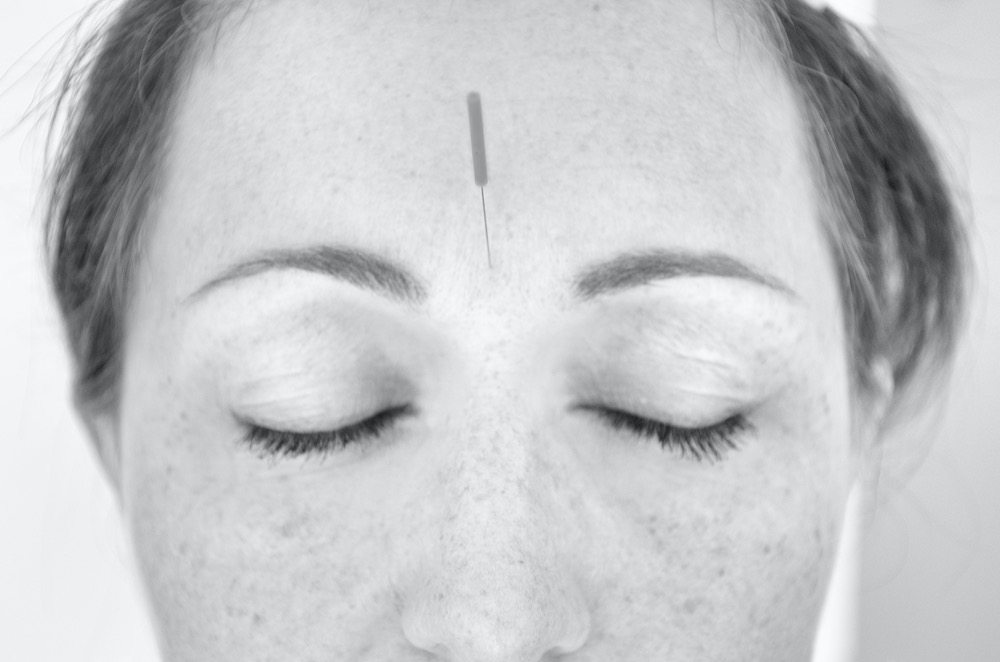
“It is by virtue of the twelve channels that human life exists, that disease arises, that human beings can be treated and illness cured. The twelve channels are where beginners start and masters end.” The Classic of Acupuncture
Circa 1st Century BCE


